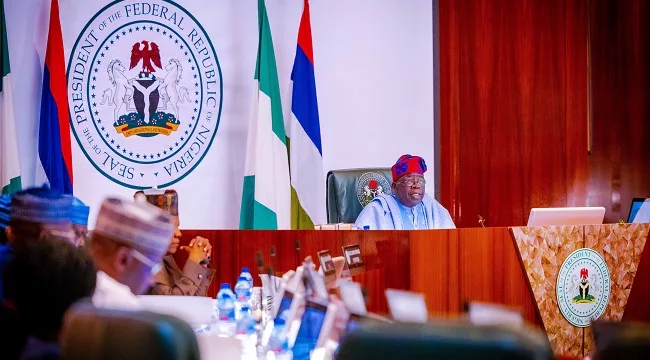An economist, Prof. Akpan Ekpo, has cautioned the federal government against using a significant portion of the 2024 budget on debt servicing, saying it can negatively impact the country’s long-term economic growth and prosperity.
Ekpo, a former director general of the West African Institute for Financial and Economic Management (WAIFEM), gave the advice in an interview in Lagos.
He said there should be investment in infrastructure and other development projects that would generate long-term benefits for the economy.
He was reacting to the 2024 budget of N27.5 trillion, presented by President Bola Tinubu to the National Assembly.
In the 2024 Appropriation Bill, debt service is projected to be N8.25 trillion which represents 45 per cent of the expected revenue.
He said, “You know the budget speech, including the appropriation, are all estimates and intentions.
“So, if those things are implemented, the economy will grow. But, don’t forget that growth is not development, you can grow and not develop.
“My worry is that what the federal government is spending for debt servicing is almost the same amount it is spending for capital projects. So, debt servicing is a big problem.
“If I were the government, I will talk to my debtors and rearrange the debt matter because they are spending almost the exact amount for debt servicing and for capital projects.’’
Ekpo also urged the government to reduce the cost of governance to enable it to finance development projects.
He said, “There is no evidence of a specific way of reducing cost of governance, we keep talking about revenue, how about governance.
“Cost of governance is very high. If we can reduce that, then we can accommodate revenue to finance all those projects, otherwise for now, we will just wait and see.’’
The economist was optimistic that the National Assembly would do its oversight function, to look at the budget critically, to ensure that quarterly reports be provided whenever it becomes a law.
Partner and chief economist of KPMG, Oyeyemi Kale, said Nigeria’s debt is only perceived to be too much because of the country’s poor repayment ability. He said conversation on the country’s debt profile would disappear if there is an improvement in revenue generation.
The 2024 budget of N27.5 trillion is 26 per cent higher than the 2023 budget presented by ex-President Muhammadu Buhari in 2022.
Meanwhile, the president also wrote NASS, seeking the approval of 8.6 billion dollars and 100 million euro external borrowing plan for critical infrastructure in areas such as power, roads, water, railway, and health.





